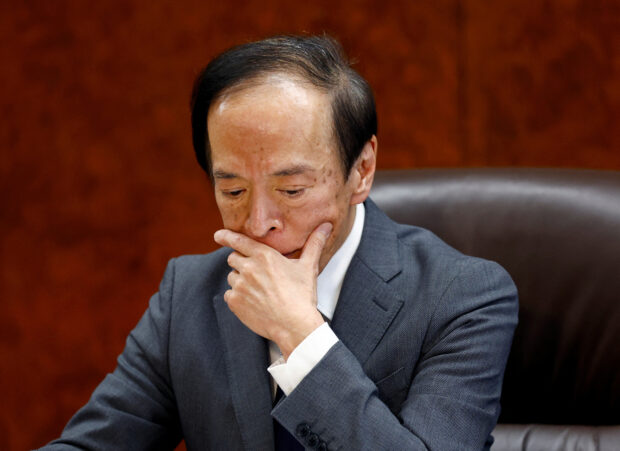
TOKYO – The Bank of Japan (BOJ) has decided to maintain its ultra-easy monetary policy on Friday, despite stronger-than-expected inflation. The BOJ’s focus remains on supporting a fragile economic recovery amidst a sharp slowdown in global growth.
The central bank has also pledged to sustain massive stimulus measures and ensure sustainable achievement of its 2 percent inflation target, along with wage hikes.
While price rises are showing signs of broadening, market attention is now on whether BOJ Governor Kazuo Ueda will issue a stronger warning regarding the risk of inflation overshooting at the post-meeting news conference.
The yen’s recent sharp decline, which drew verbal warning from the finance minister, may also keep inflation elevated and put the BOJ’s ultra-low interest rates in the spotlight.
“Excessive volatility is undesirable and the yen should remain stable,” Finance Minister Shunichi Suzuki told reporters. He also expressed his expectation that the BOJ will work closely with the government to achieve its 2 percent inflation target sustainably.
The BOJ’s decision comes after the Federal Reserve’s recent pause in interest rate hikes, as it monitors the delayed economic impact of past monetary tightening.
As anticipated, the BOJ has maintained its -0.1 percent short-term interest rate target and 0 percent cap on the 10-year bond yield, as part of its yield curve control policy.
While acknowledging risks to the global economic outlook, the BOJ maintains its view that Japan’s economy is heading for a moderate recovery, thanks to a post-pandemic pickup in consumption.
Japan’s core consumer inflation reached 3.4 percent in April, staying above the BOJ’s target for over a year. This has fueled expectations that the bank may phase out its yield curve control policy sometime this year.
The recent actions of the European Central Bank, which raised borrowing costs to a 22-year high, serve as a reminder of the dangers of misinterpreting early signs of persistent inflation.
Japan’s economy, which has been recovering slowly from the pandemic, expanded by an annualized 2.7 percent in the first quarter. Solid corporate and household spending have helped cushion the blow from soft exports.
Japan maintains focus on economic growth but signals an end to crisis-mode fiscal support
Denial of responsibility! Samachar Central is an automatic aggregator of Global media. In each content, the hyperlink to the primary source is specified. All trademarks belong to their rightful owners, and all materials to their authors. For any complaint, please reach us at – [email protected]. We will take necessary action within 24 hours.


